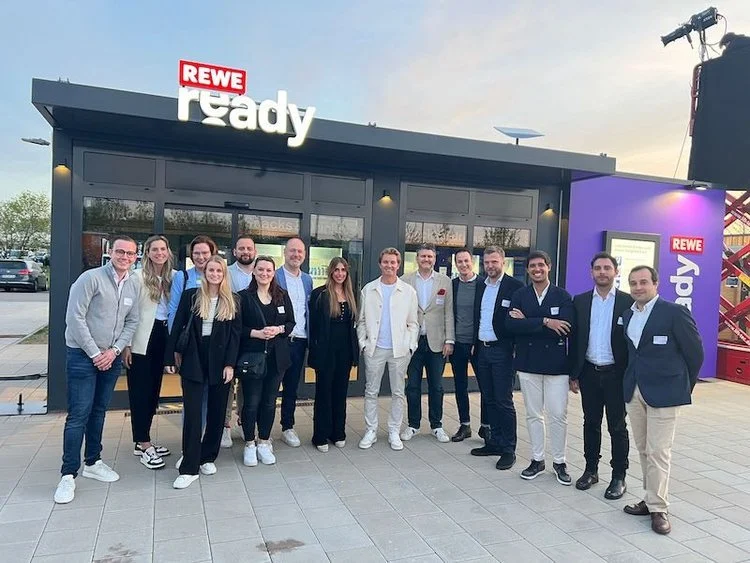Startup Q&A: Justine Santa Cruz, SVP, Enterprise and Retail, Satisfi Labs
RTIH: Tell us about Satisfi Labs
JSC: Satisfi Labs is a knowledge management platform that makes brands AI-ready. Our AI Knowledge Engine transforms structured and unstructured data to make information accessible and conversational. We help brands unlock the full potential of conversational search and commerce to improve customer engagement, discover new customer insights and increase sales.
RTIH: What was the inspiration behind setting the company up?
JSC: The initial inspiration for Satisfi Labs came about at a baseball game when our CEO Don White noticed that bacon on a stick was on the menu at Citifield. The item was clearly available, but it wasn’t clear where fans could find it in the stadium.
Furthermore, this wasn’t something you could easily ask a search engine. At best you would get an answer after scouring through multiple results, and at worst you’d get no answer. He and the other founders, having experience with data, knew there must be a way that you could connect the fan directly to the stadium - who clearly had the data sitting somewhere on a spreadsheet, in an employee’s head or on a concession sign.
From there, Satisfi Labs was born and its ability to pivot from stadium and game-day answers to retail applications around trouble-shooting, replenishment, and inventory tracking has grown.
RTIH: What has been the industry reaction thus far?
JSC: We’ve had two types of reactions so far. The first being relief that an AI knowledge management platform like ours exists because retailers have been trying to manage this internally through very manual work on spreadsheets, separate databases, and disparate platforms. These are usually hyper growth brands that need to scale their knowledge across multiple teams as customers are rapidly looking for smarter solutions.
We’ve also encountered a lot of interest in our multi-channel capabilities. Most retailers are anticipating that distributed commerce is here to stay and will continue to grow. If WeChat in China is any indication of how distributed traditional e-commerce can thrive, then we will soon follow and retailers are preparing for this shift.
A favourite quote I received from a recent beauty retailer was “If I was starting a brand today and didn’t have a website, would I even build one? I’d go to where the people are, they’re all talking to eachother on these chat platforms.”
RTIH: What has been your biggest challenge/setback?
JSC: Our biggest obstacle is gaining awareness for the benefits of a smarter, more sophisticated AI platform. There are a lot of sceptics out there due to “dumb chatbots” of the past that failed to successfully deliver on conversational search.
Older chatbots were built from the top down, meaning they started with an assumption that retailers know their frequently asked questions, and programmed answers to the top questions.
We’ve turned the problem around, making bots smarter by starting with the answers first. By creating deep knowledge bases with a retailer’s data, we are organising it in a way for AI systems to understand, and in turn allowing the bot to retrieve an exponential number of answers to any given question.
“A favourite quote I received from a beauty retailer was, “If I was starting a brand today and didn’t have a website, would I even build one? I’d go to where the people are, they’re all talking to eachother on these chat platforms"
RTIH: What are the biggest challenges facing the omnichannel retail sector right now?
JSC: First, omnichannel’s definition has evolved considerably since the term was first coined to mean bricks and mortar stores and e-commerce. Now, we have so many other channels and touchpoints that we never anticipated such as Facebook Messenger, WeChat, and Alexa.
The challenge is making sure every interaction is appropriate for the channel, meaning information needs to be delivered thoughtfully depending on how the customer engages with the channel i.e. voice, long form text, hyperlinks etc. Additionally, brands need to also consider the tone needed for the channel so flexibility and ease when answering is key.
RTIH: What's the best question about your company or the market asked of you recently by a.) an investor and b.) a customer?
JSC: Investor: Why did you decide to do Techstars? Seems like a departure from sports/entertainment.
Customer: What can’t you do?
RTIH: What can we expect to see from Satisfi Labs over the next 12 months?
JSC: We are focusing on creating expert AI experiences across retailers and brands that want to scale human knowledge and user-generated content. We’ve found that in specialty retail, depth of knowledge is key to establish these brands as experts in their category. Particularly for sporting goods, home furniture and decor, electronics, and beauty, we are focused on developing more points of context that the Knowledge Engine can consume.
We’re also working to secure partnerships with major communication, social and data platforms to bring life to beta features and cutting-edge applications of AI where most customers conduct chat today.










Continue reading…